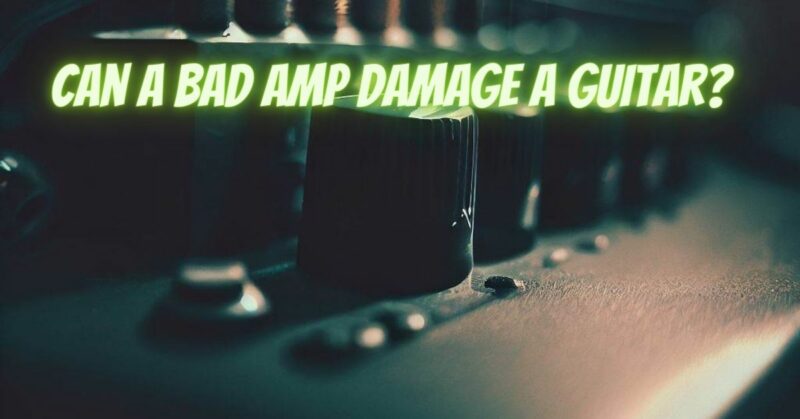Guitar amplifiers are essential companions to electric guitars, shaping the tones and textures of the music produced. However, there’s a common concern among guitarists: can a bad or faulty amplifier actually cause damage to their beloved instrument? In this article, we will explore the relationship between amplifiers and guitars to understand whether a poor-quality or malfunctioning amp can pose a risk to your prized instrument.
The Amplifier’s Role:
Guitar amplifiers are responsible for amplifying the electrical signal generated by your guitar’s pickups. They play a pivotal role in shaping your guitar’s sound by adding effects, equalization, and volume control. While the amplifier can significantly affect your overall tone, it’s important to differentiate between its impact on sound and its potential to damage your guitar.
Risk of Damage:
- Quality and Functionality: A well-designed and properly functioning amplifier should not cause damage to your guitar. However, using a low-quality or malfunctioning amp could potentially expose your guitar to risks.
- Excessive Volume and Distortion: One scenario where damage could occur is if you’re using excessive volume levels and distortion. Pushing an amplifier beyond its intended limits might result in distortion that can affect both the amplifier’s performance and the sound quality of your guitar.
Protection Measures:
- Use a Surge Protector: Investing in a surge protector can safeguard your guitar and amplifier from sudden power spikes, reducing the risk of electrical damage.
- Regular Maintenance: Proper maintenance of your amplifier can prevent issues that might negatively impact your guitar’s sound. Keep your amplifier clean, ensure proper ventilation, and address any malfunctions promptly.
- Monitor for Distortion: If you notice your amplifier producing excessive distortion, it’s wise to investigate and address the issue before it potentially affects your guitar’s tone.
Sound Quality vs. Damage:
- Tonal Changes vs. Physical Damage: While a bad amplifier might cause undesirable tonal changes, it’s unlikely to directly damage the physical structure of your guitar. Any changes in sound quality are reversible once you switch to a properly functioning amplifier.
- Protect Your Investment: To ensure your guitar’s longevity and maintain its optimal performance, invest in a good-quality amplifier from reputable brands. This will not only enhance your overall playing experience but also minimize any potential risks.
While a bad amplifier might have an impact on your guitar’s sound quality, the risk of actual physical damage to your instrument is minimal. To prevent any adverse effects on your guitar, focus on using a well-maintained, high-quality amplifier that suits your musical preferences and playing style. Regular maintenance, proper usage, and investing in reliable equipment will contribute to a rewarding guitar-playing experience while keeping your instrument safe from harm.


